US Navy Seizes Illicit Weapons Originating From Iran Aboard A Vessel
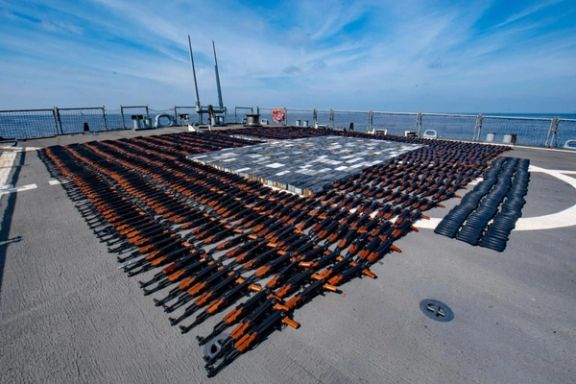
The US Navy said on Wednesday that two of its patrol coastal ships seized a cargo of illicit weapons from a fishing vessel in the North Arabian Sea on Monday.

The US Navy said on Wednesday that two of its patrol coastal ships seized a cargo of illicit weapons from a fishing vessel in the North Arabian Sea on Monday.
The shipment consists of approximately 1,400 AK-47 assault rifles and 226,600 rounds of ammunition, the fleet said in a statement.
"The stateless vessel was assessed to have originated in Iran and transited international waters along a route historically used to traffic weapons unlawfully to the Houthis in Yemen," it added.
Direct or indirect supply, sale or transfer of weapons to the Houthi movement violates UN Security Council resolutions and US sanctions.
The vessel's five crew members, who identified themselves as Yemeni nationals, will be returned to Yemen, the fleet said, adding that the US naval forces sank the vessel after removing the crew and illicit cargo.
Guided-missile cruiser USS Monterey (CG 61) seized dozens of advanced Russian-made anti-tank guided missiles, thousands of Chinese Type 56 assault rifles, and hundreds of PKM machine guns, sniper rifles and rocket-propelled grenade launchers from a stateless vessel transiting the North Arabian Sea in May.
Iran supplies weapons to Houthi rebels in Yemen who are fighting a Saudi-led coalition that intervened in the country’s civil war in 2015 to back the internationally-recognized government.
Report by Reuters
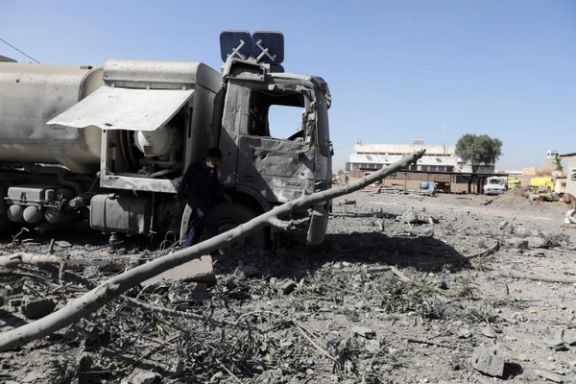
The Saudi-led coalition fighting Iran-aligned Houthi forces in Yemen said it launched air strikes against a Houthi security forces camp in the capital Sanaa.
The operation, which the coalition said destroyed seven drone and weapons stores at the camp, was in response to a drone the coalition said had been launched from Houthi territory towards Saudi's Red Sea city of Jizan.
The coalition has intensified attacks against targets in Sanaa in recent weeks, as Houthi forces continue to fire drones and missiles at Saudi Arabia.
The Yemeni capital is held by the Iran-aligned Houthi movement, which has been battling the coalition, which backs Yemen's internationally recognized government, for seven years.
Houthi-run Masirah TV said the strikes had hit the Sabaeen neighborhood of Sanaa in the early hours, damaging some civilian homes and causing some damage to a maternity and children's hospital.
During the conflict, which has killed tens of thousands and displaced millions, Houthi forces have regularly sent drones and fired missiles into Saudi Arabia, and the Saudi-led coalition has retaliated with air strikes inside Yemen.
The coalition said it carried out the operation in accordance with international humanitarian law.
Report by Reuters
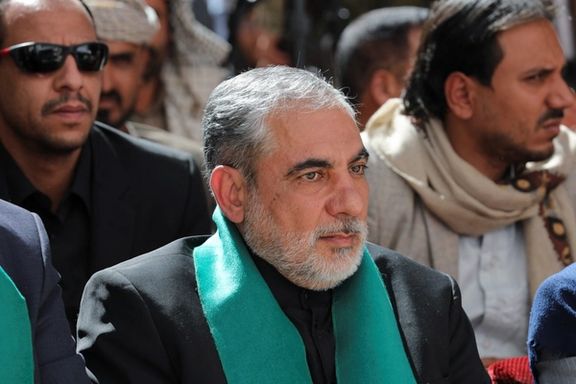
The Iranian envoy to Sanaa who died Tuesday after evacuation to Tehran is suspected to be the Qods Force commander with a $15 million US price tag on his head.
------------------------------------------------------------------------------------------------------------------
This report has been updated with new information.
-----------------------------------------------------------------------------------------------------------------
Suspicions about the Iranian ambassador's real identity rose to new heights Tuesday after in its obituary, the official news agency (IRNA) said ambassador Hassan Irloo "was also known as General Shahlaei" but later in the evening removed the reference to Shahlaei from its website.
General [Abdolreza] Shahlaei is a mysterious figure never shown in photos in the Iranian media.
Hasan Irloo (Irlu), Iran’s ambassador with Houthi rebels, died Tuesday at aged 63, two days after his repatriation from Yemen on an Iraqi plane in coordination with Saudi Arabia that maintains an air blockade over Yemeni territories controlled by Iran-aligned Houthis. Iran insists he was evacuated from Yemen because he was suffered from Covid-19, but he could not be saved.
"He was one of the commanders of resistance and his pivotal role alongside martyr Ghasem Soleimani in forcing the US out of Iraq (during Obama’s first term) as well as in the expulsion of Mujahedin-e Khalq (MEK) from Iraq are among his unforgettable feats," IRNA wrote in the obituary which referred to Irloo as a martyr.

The title shahid (martyr) is usually reserved for those killed in battle and 'resistance' is a term the Islamic Republic uses to describe its allies and proxies in the region.
At Irloo's funeral ceremony Wednesday, deputy commander of the Revolutionary Guards (IRGC), Ali Fadavi, also named him as a “fighter in the resistance front" and accused the US and its allies of delaying Irloo’s evacuation from Sanaa and his death.
Irloo was appointed as Iran's ambassador to the Houthi-controlled Yemeni capital, Sanaa, in October where he presented his credentials to Houthi Foreign Minister Hisham Sharaf but how he arrived in Yemen despite the blockade remained a mystery.
The Wall Street Journal in a report last week claimed that Houthis had asked Tehran to remove Irloo from Sanaa. Both Iran and the Houthi leadership denied the report, insisting that the ambassador suffered from Covid and needed to receive medical attention in Iran.
The US State Department Spokesman Ned Price said in a tweet October 21 that Irloo was an IRGC member tied to the Lebanese Hezbollah who had been "smuggled" into Yemen "under the guise of ambassador to the Houthi militia".
In December 2019, the US Special Representative for Iran, Brian Hook, announced that the State Department was offering a $15 million reward for information on an Iranian Revolutionary Guards (IRGC) Commander in Yemen known as Abdul-Reza Shahlaei for his financial activities, networks, and associates. "We remain gravely concerned by his presence in Yemen and potential role in providing advanced weaponry of the kind that we have interdicted to the Houthis," Hook said.
The US Treasury Department in 2011 had accused Shahlaei of coordinating a failed plot to assassinate Saudi Arabia’s ambassador to the US at a cafe in Washington. “Shahlai approved financial allotments ... to help recruit other individuals for the plot, approving $5 million as payment for all of the operations discussed.” Irloo, also a member of Iran's Revolutionary Guards (IRGC), was sanctioned by the US Treasury Department in December 2020 due to his connections to the IRGC's Qods Force.
In January 2020, two unnamed US officials told Reuters that on January 3, 2020 when a US drone killed Qods Commander Qasem Soleimani, another US military unit was tasked with killing a second senior Qods Commander, Abdolreza Shahlai, but he escaped unscathed.
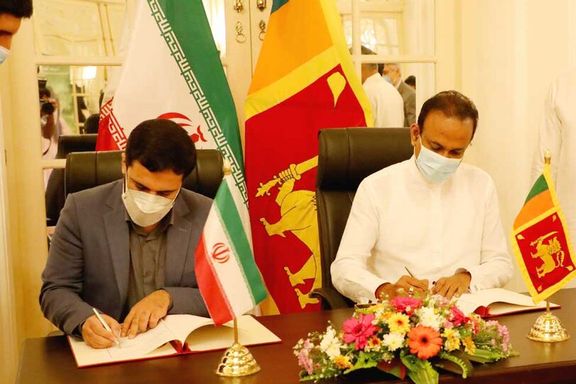
To settle its $251 million debt to Iran, Sri Lanka will barter tea in monthly instalments of $5 million, because of United States sanctions on Iranian banking.
Head of Iran’s Trade Promotion Organization, Alireza Peyman-Pak and Sri Lanka Minister of Plantation, Ramesh Pathirana signed the barter agreement in Colombo on Tuesday.
Pathirana said that the deal makes it possible for the Ceylon Petroleum Corporation to settle its debts with the National Iranian Oil Company without violating US sanctions.
“This scheme will not violate any UN or US sanctions since tea has been categorized as a food item on humanitarian grounds while none of the black-listed Iranian banks will be involved in the equation,” read a statement by Sri Lanka’s plantation ministry.
According to the agreement, Sri Lanka’s Treasury will release equivalent of $5 million in rupees every month to the Sri Lanka Tea Board - a state-run industry regulator– that will then pay individual exporters in rupees at the central bank’s exchange rate.
Iran is among the top 10 importers of Ceylon Tea for the past several decades although purchases have declined following US sanctions.
Iran is trying to increase barter deals amid sanctions. “We have the lower hand and we have to make concessions, which means we have to accept any goods at any price”, Hamidreza Salehi, a member of Tehran’s Chamber of Commerce, has said.
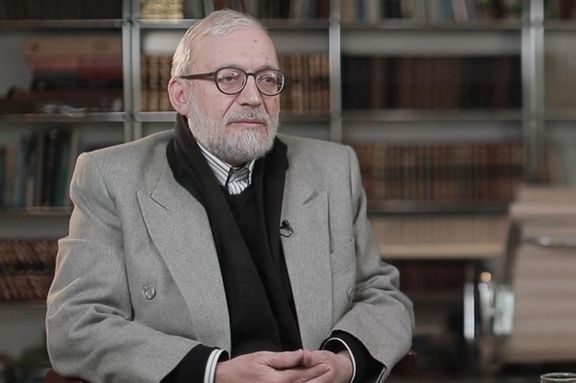
A senior Iranian politician has called for closer cooperation with Taliban, saying the Islamic Republic should have a key role in aiding Taliban’s intelligence.
Mohammad-Javad Larijani, who was a top advisor to Supreme Leader Ali Khamenei in foreign affairs and a former head of Iran’s High Council for Human rights, made the remarks in an interview published on Wednesday.
He said cooperation with the Taliban government is an opportunity for Iran that shouldn’t be missed.
He told Tasnim news agency, affiliated to Iran’s Revolutionary Guard Corps, that Iran’s good relations with the late anti-Taliban leader Ahmad Shah Massoud -- also known as the Lion of Panjshir -- is not a reason to support Ahmad Massoud, the son of the veteran guerrilla commander who has vowed to continue resistance against Taliban.
Larijani, who is currently the chairman of the Iranian Institute for Research in Fundamental Sciences, acknowledged that there are a lot of bad beliefs in Taliban’s ideology, saying that “this new modernized version of Taliban seems to give up on some of their bad ideas because they are not practical, at least temporarily”.
Taliban's victory in August was welcomed by Iran's hardliners as a big defeat for the United States, although some criticized calls to cooperate with "reformed" Taliban.
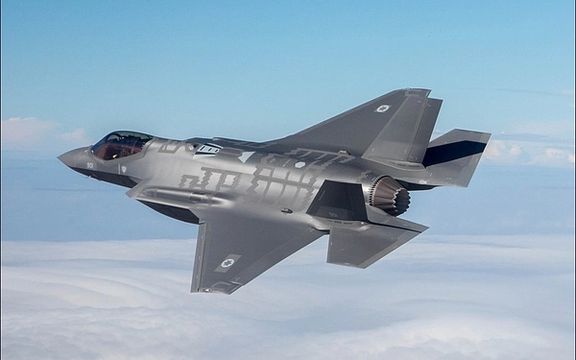
The incoming commander of the Israeli air force Wednesday said that if need be, Israel can successfully destroy Iran’s nuclear facilities “tomorrow.”
Major General Tomer Bar, who is slated to take the helm in April, said in an interview with Israeli daily Yedioth Ahronoth that he is probably the officer who will need to command the strike against Iran's nuclear program if the ongoing talks in Vienna between Tehran and world powers fail.
"I have to assume it will happen in my time, and my shoulders already understand the weight of the responsibility," said the former fighter pilot, who currently commands the Force Design Directorate.
He said that despite reports on Israel’s lack of readiness or other factors hindering a possible strike on Iran, he is certain that it can complete the mission successfully. “There is no way that…I will return home without being able to say “I completed the mission”, he stressed.
"From the moment I sat here at the head of the Force Design Directorate, and the chief of staff spoke with me, the mission of the 'third circle' (Iran) was there… We are not starting from zero. We equipped ourselves with F-35s, we procured thousands of Iron Dome interceptors for multi-layer defense," Bar added.
The third circle, whose primary focus is Iran, refers to the three levels of direct threats facing Israel, the first being small terror groups on Israeli borders, like Hamas; the second being larger threats, like the Syrian army and Hezbollah; and the third being countries that do not share a border with Israel, like Iran and Iraq.
Bar said he believes that as soon as Israel strikes Iran, the next war with Hezbollah will break out. “I have to assume that he [Hezbollah Secretary-General Hassan Nasrallah] will automatically be all in. Thirty years he has waited for this order and there is no way that he will not be there and with the highest intensity. We have to be prepared for this".
He noted that the next war with Lebanon will definitely involve a ground operation, but it will not be comparable to the previous wars. In 2006, Israel waged a ground and air war against Hezbollah with limited success, but critics said ground force level committed was limited.
"This is not raising the volume on the same radio. The familiarity with Hezbollah, the number of targets, the strength built over the years in matters of intelligence and attack capability, electronic warfare, cyber, make it something else entirely. I can stand by my word,” Bar said, adding that Hezbollah cannot imagine Israel’s power.
"Maybe they will try to bring in special forces or shoot at the home front, but we are no longer on this scale. We want a clear victory this time, in a shorter time and with fewer losses," the commander said.
Earlier in the day, visiting US National Security Adviser Jake Sullivan and Israeli Prime Minister Naftali Bennett discussed Iran and the ongoing nuclear talks, stressing the need for a joint strategy. Sullivan said he had been sent to Israel by President Joe Biden "because at a critical juncture for both our countries on a major set of security issues, it's important that we sit together and develop a common strategy, a common outlook".
A senior Iranian commander said on Monday that Israel does not have the ability to strike Iran’s nuclear or military bases without US approval, and repeated threats to attack Israel, as the Revolutionary Guard launched large-scale air and naval drills in the Persian Gulf.
"If Israel carries out attacks against Iran, our armed forces will immediately attack all centers, bases, routes, and spaces used to carry out the aggression," Iranian commander Gholamali Rashid said.
Following weeks of reports of Israeli preparations for attacking Iran's nuclear installations, the Tehran Times published an article -- headlined "Just One Wrong Move"– with a map of purported missile targets in Israel on its front page.
Israel has long threatened military action against Iran, and recently reportedly allocated $1.5 billion for an attack if Iran gets dangerously close to obtaining a nuclear weapon.